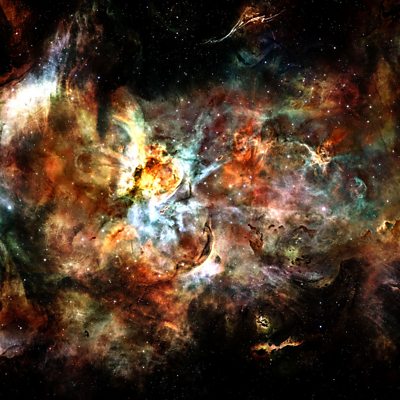Episode details

Radio 4,2 mins
"We are free to feel our total insignificance. Just as we are free to find significance." - Rhidian Brook
Thought for the DayAvailable for over a year
Good Morning, 25 years ago the Hubble Telescope was launched by NASA and sent out to gather images of the distant stars and galaxies of our universe. And perhaps someone else’s universe, too. It has delivered some of the most beautiful and memorable images of our time – of all time, from all time. When the front page of a newspaper carries a picture of the latest discovery of a nebula, or triple-moon conjunction, or loopy galaxy, the chances are it will have been taken by the Hubble. One shot in particular, taken in 2010, sticks in the mind. It shows the Carina Nebula, a pillar of cloud 3 light years tall, with stars being born in the gas and dust. Its nickname is The Finger Of God. When I first saw it I experienced a constellation of reactions: ‘Wow! What is that? Woe is me!’ You could say I had been totally ‘Hubbled’. Which I’d loosely define as the state of wonder induced by seeing images from the Hubble telescope. This brilliant machine has done what it was designed to do. But as well as gathering hard scientific data it’s done something else. It’s provoked wonder. Fired people’s imaginations. Got them thinking about their place in the universe. And the fascinating thing is that - like some Cosmic Rorschach Test - people conclude different things from what they see. One person sees these images as a perfect demonstration of human insignificance. Proof that we are, as Douglas Adams put it: ‘the denizens of a small planet in the un-chartered backwaters of the unfashionable end of the western spiral arm of the galaxy.’ Whilst another thinks: ‘so, in all this infinite chaos, where there are black holes and dead ice planets, I happen to be on the one with the exact conditions required to sustain life. Not only that I get to question that life and look back at other planets in search of answers.’ Whatever our world or planet-view, I’m not sure there’s a correct reaction. Wonder can’t be prescribed. We are free to feel our total insignificance. Just as we are free to find significance. We can feel both if we want. I trust and need the scientists to tell me that the cloud of gas is made of hydrogen and that it’s 3 light-years high, but I can still feel a numinous glory and connection as much a cosmic terror and isolation. Trying to understand our place in the universe is as much a part of the faith journey as it is the scientific. Questions of significance and insignificance lie at the heart of the Psalmist’s question to God: ‘When I consider your heavens and the work of your fingers, the moons and the stars, what is man that you care for him?’ In an age where it is hard to see religion and science in the same space, the Hubble telescope has provided beautiful and unexpected perspective. First broadcast March 4 2015
Programme Website